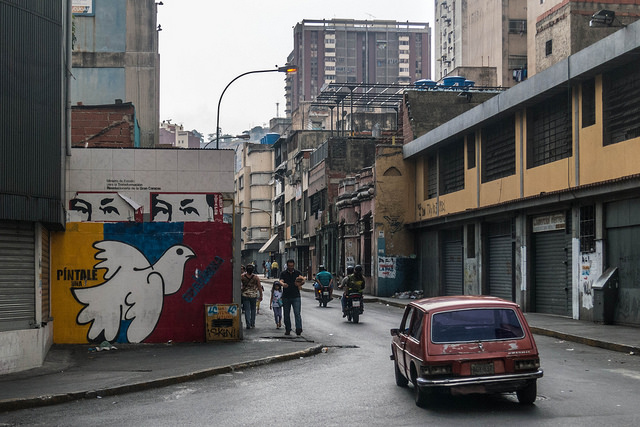Years of “Chavista” government in Venezuela have achieved two objectives: to lead the country towards a true economic disaster and social dissolution and, at the same time, to create in its rulers the certainty that they dominate an unshakable power. Too many interests created a skein that would, supposedly, be compact and able to withstand any external onslaught. The blind omnipotence of a power that devours the ability to analyze the reality, coupled with the desperate economic situation as regards the forthcoming payment commitments that Venezuela will face with empty coffers, have led the President and his allies in the Supreme Tribunal of Justice (STJ) to try the maneuver to definitively dismantle the National Assembly, assume its functions, and thus have the chance to negotiate “as if legal», international economic agreements. Perhaps they also relied on the fear that the STJ’s decision —to wipe out parliamentary immunity for Congress members and give the President extraordinary powers in criminal, military, economic, social, political and civil matters— would produce.
They knew, and possibly hoped, that this new coup was to be met by a population burdened by problems unimaginable until a few years ago: the constant, daily struggle to survive hunger, disease and delinquency. The blindness of power did not allow them to evaluate national and international reactions. Perhaps they thought that they would pull it as did the Ortega dynasty in Nicaragua or that of the Castros in Cuba. But, fortunately, Venezuela is a country with a very deep democratic sense; so much so, that they received their repudiation and true stop from their own ranks, since no less could have been be expected from the opposition. The statement of the Attorney General Luisa Ortega Díaz, who, in condemning the STJ’s decision spoke of «rupture of the constitutional thread», had the strength of a bomb, and showed the great seams of a power that was believed to be monolithic. It was well known that there was growing discontent in “Chavismo”; but they had handled it so far with the tacit agreement of «washing the dirty rags at home.» The Attorney General’s statement broke that practice definitively, by creating a precedent that could actually mark the end of the government and of the most authoritarian and corrupt sectors of “Chavismo”, to leave room for the most democratic ones, those who are willing to measure themselves in the political arena against any other party, in a country with a true —not only apparent— democracy.
Such a blatantly blind action had important consequences, both internal to the government and the opposition, as well as international, forcing many rulers to leave their comfort zones and their «diplomatic» soft attitudes. Everyone knew that there was no democracy in Venezuela, that the division of powers was non-existent, and that there are political prisoners, exiled and persecuted persons. With his detailed report, Almagro said so in the OAS; other agencies, dealing with human rights and legality, also said so at different times. Governments and other international organizations, however, preferred to skate in the slippery roads of democracy, saying without saying anything, avoiding the hot potato of a confrontation with a «democratically elected» government.
This is also a turning point for the opposition parties, which must face the enormous challenge of becoming united, to create an articulated and coherent agenda, capable of avoiding authoritarian drifts and of breaking down indifference and hopelessness.
The partial reversal of the Supreme Tribunal of Justice does not erase the new wound suffered by a democracy, which has been bleeding for a long time; rather, it exposed other wounds.
Venezuela is an agonizing country; and it does not deserve that. The people who day to day suffer the consequences of an inefficient and corrupt government do not deserve it either; and neither deserve it those who went out in disarray, accepting any sacrifice in order to conserve life, in a war that, as the Attorney General admitted, Left a balance of 21,752 persons killed in 2016, with an increase of 22.3 percent regarding the previous year.
Perhaps the time has come when the “Chavistas” who did not allow themselves to be captivated by the mermaids’ corruption song, and who one day believed in the possibility of living in a more just country, begin to detach themselves from the others; that the opposition abandon internal divisions in favor of a country-project, and draw a clear path to achieving this; and that the governments and international organizations understand that they can no longer play the game of the three little monkeys: I do not see, I do not hear, I do not speak.
Photo Credits: Julio César Mesa


